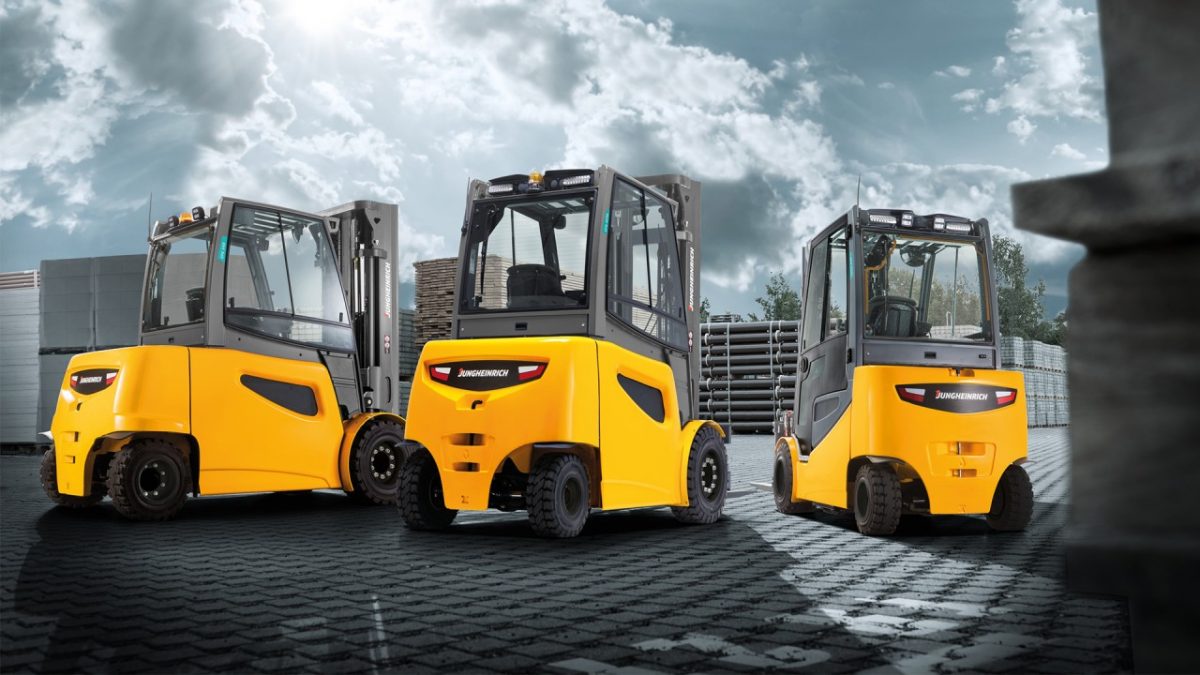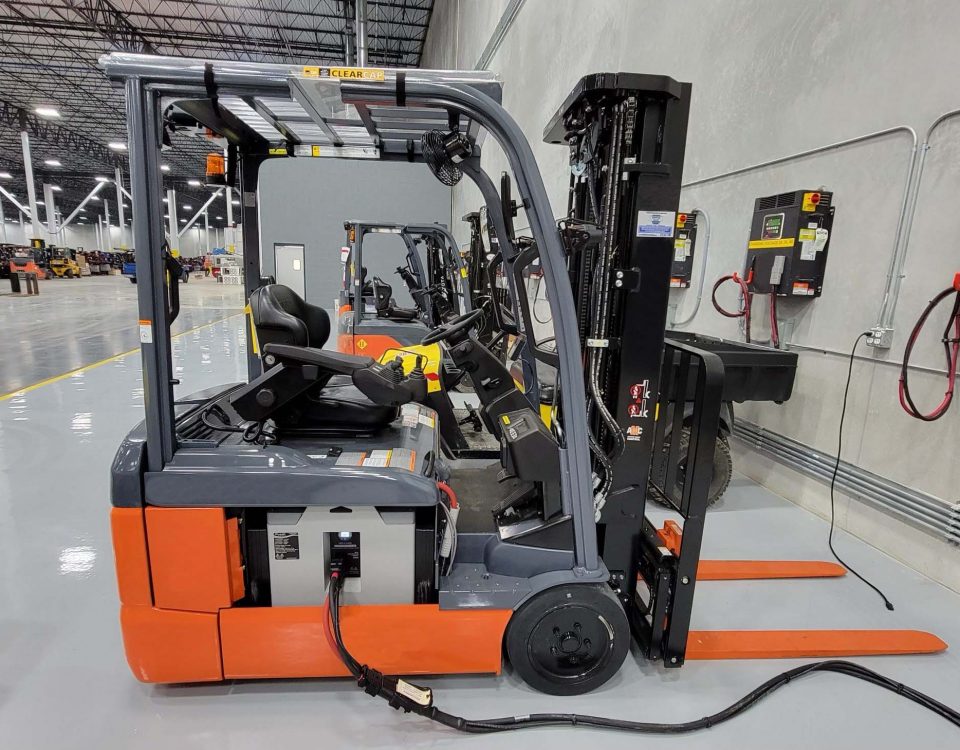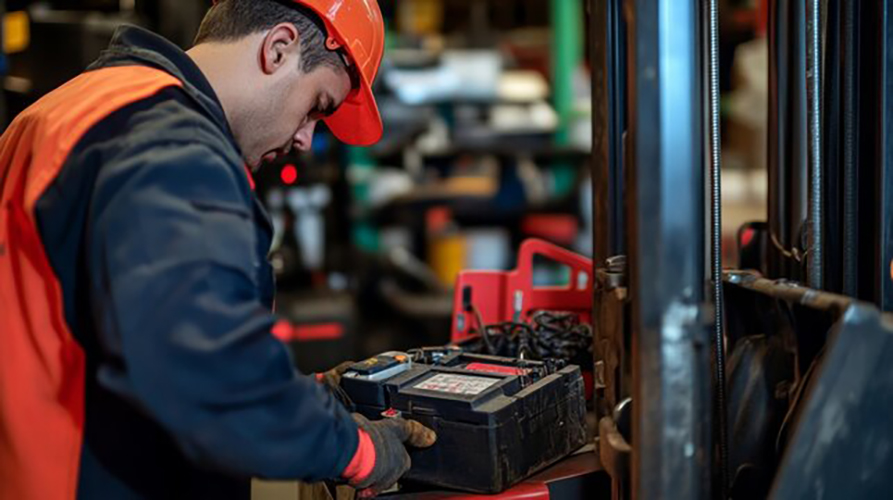Introduction: The Evolution of Lithium Forklift Batteries
Lithium-ion battery technology has transformed the material handling industry, offering more efficient, longer-lasting, and environmentally friendly options compared to traditional lead-acid batteries. As businesses seek cleaner and more sustainable solutions, lithium batteries have become essential to improving productivity and reducing operational costs. This trend is driven by constant advancements, including fast-charging capabilities, battery swapping systems, and the integration of smart technology for real-time monitoring and enhanced safety. In this article, we’ll explore some of the latest innovations in lithium forklift battery technology, as well as trends that are shaping the future of the industry.
Emerging Innovations: Fast Charging, Battery Swapping, and Smart Technology
1. Fast Charging: Reducing Downtime to Boost Productivity
One of the main challenges for forklift fleets is managing downtime caused by battery recharging. Fast-charging technology addresses this by significantly reducing the time required to recharge batteries. With advancements in lithium-ion technology, charging times can be shortened to just 1-2 hours compared to the 8 hours required for traditional lead-acid batteries. This means that operators can recharge batteries during short breaks or shift changes, allowing forklifts to remain operational throughout the day without extended downtime.
Fast charging not only improves productivity but also extends battery lifespan. Unlike lead-acid batteries, which suffer from a memory effect that can reduce performance over time, lithium batteries are more resilient to frequent charging. This flexibility allows businesses to adopt opportunity charging—recharging the battery when convenient, rather than waiting for it to fully deplete—thus optimizing the entire workday.
2. Battery Swapping: Enhancing Flexibility and Efficiency
For operations with demanding schedules, battery swapping technology is becoming increasingly popular. Battery swapping allows operators to quickly exchange depleted batteries with fully charged ones, minimizing downtime and maximizing operational efficiency. This process takes only a few minutes, compared to the hours required for conventional charging. Furthermore, battery swapping systems are becoming more automated, allowing for easier and safer handling.
In high-demand environments like logistics centers and warehouses, where forklifts often run on a 24/7 basis, battery swapping is a game-changer. By implementing a battery-swapping system, companies can reduce the number of batteries required per forklift, lowering upfront costs and maintenance expenses. This solution also supports sustainability goals by reducing waste, as fewer batteries need to be produced and disposed of over time.
3. Smart Technology Integration: Real-Time Monitoring and Enhanced Safety
As lithium battery technology continues to evolve, the integration of smart technology has opened up new possibilities. Smart battery systems equipped with Internet of Things (IoT) capabilities can provide real-time data on battery performance, temperature, state of charge, and potential issues. With this information, operators and maintenance teams can proactively address problems, reducing the risk of battery failure and ensuring continuous performance.
Smart technology also enhances safety by providing alerts for overheating, excessive vibration, or overcharging. This data-driven approach to battery management allows companies to better predict maintenance needs, avoid unexpected failures, and extend the overall lifespan of their lithium batteries. Additionally, many smart batteries come with remote management capabilities, allowing fleet managers to monitor battery health and performance from any location.
Industry Trends: The Rise of Lithium Battery Adoption in Material Handling
As the benefits of lithium batteries become increasingly apparent, industries across the board are accelerating their adoption of this technology. In material handling, where efficiency and uptime are critical, lithium batteries have a particularly compelling appeal due to their longevity, fast charging, and low maintenance requirements. Businesses are also focusing on sustainability, and lithium batteries offer a cleaner alternative to lead-acid options, aligning with environmental goals by reducing carbon emissions and waste.
Collaboration Opportunities: Partnerships between Manufacturers and Tech Innovators
The rapid pace of innovation in lithium battery technology has fostered collaboration between battery manufacturers and technology companies. By working together, these partners can develop batteries tailored to specific industry needs, such as those for the material handling sector, where durability and fast charging are essential. Collaborative efforts are also being directed toward recycling technologies, which will allow batteries to be repurposed at the end of their useful life, reducing waste and environmental impact.
Strategic partnerships have led to the development of more advanced battery management systems (BMS) that integrate with fleet management software, offering insights into fleet performance and energy use. These systems empower companies to optimize energy consumption and streamline maintenance, ultimately reducing operational costs. Such partnerships help drive innovation and bring more efficient and sustainable battery solutions to market faster.
About RICHYE
RICHYE is a trusted lithium battery manufacturer known for producing high-quality lithium batteries with outstanding performance, safety, and reliability. From forklifts to RVs and beyond, RICHYE’s batteries provide efficient, durable power solutions that meet the demands of today’s industries. With a commitment to innovation and sustainability, RICHYE offers batteries designed to excel in quality, cost-effectiveness, and safety, making them a dependable choice for any application.
Conclusion: Preparing for the Next Generation of Lithium Forklift Batteries
The future of lithium forklift batteries is bright, with rapid advancements that promise to reshape material handling and other industries. Fast charging, battery swapping, and smart technology integration are just a few examples of innovations that are already making a significant impact. As more businesses recognize the value of lithium technology, the industry will likely see even broader adoption, bolstered by collaborations between battery manufacturers and tech innovators.
By staying informed about these emerging trends, businesses can make smarter decisions about their battery investments, improve operational efficiency, and ensure that their fleets remain at the forefront of technological advancements. With companies like RICHYE leading the way in reliable and high-performance lithium batteries, the material handling industry is poised for an era of greater efficiency, sustainability, and profitability.




